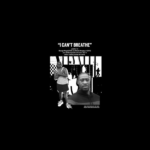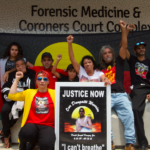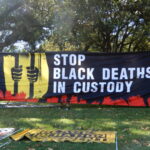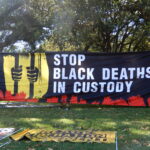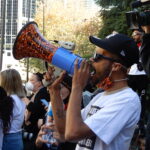Further Charges Brought Against George Floyd’s Killer, While Justice Continues to Evade David Dungay
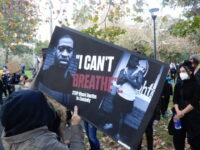
Further charges have been laid against Derek Chauvin and the three former Minneapolis officers involved in George Floyd’s death.
In the eyes of many, the conviction of Derek Chauvin last month on state charges of second-degree unintentional murder, third-degree murder and second-degree manslaughter signalled a new era for police accountability in America.
He is currently behind bars in Minnesota’s only maximum-security prison as he awaits sentencing on 25 June 25. He faces up to 75 years in in prison.
In the Minnesota, second-degree murder carries a maximum sentence of 40 years behind bars. Third-degree murder carries a maximum sentence of 25 years, while second-degree manslaughter is punishable by up to 10 years.
Additional charges laid against the four officers
His fellow officers Thomas Lane, J Kueng and Tou Thao face charges related to aiding and abetting second-degree murder and manslaughter.
In addition, all four men now face charges of violating George Floyd’s constitutional rights
The four officers are charged with wilfully depriving Mr Floyd of liberty without due process — over their alleged deliberate indifference to Mr Floyd’s medical needs.
Derek Chauvin has been charged with violating Floyd’s right to be free from unreasonable seizure and unreasonable force by a police officer when he knelt on his neck and ignored his pleas for breath.
Mr Thao and Mr Kueng are also charged with violating Floyd’s right to be free from unreasonable seizure.
It is alleged they did not intervene to stop Chauvin as he knelt on Floyd’s neck, and all four officers have been charged over their failure to provide Floyd with medical care.
The three men, who alongside Derek Chavin, were discharged from the police force after the death of George Floyd which sparked global riots against police brutality and racial inequities, will face a state trial in August.
Prosecutors allege that Mr Kueng and Mr Lane also helped restrain Floyd – Mr Kueng knelt on Floyd’s back and Lane held down Floyd’s legs, while Mr Thao held back bystanders and kept them from intervening during the nine-and-a-half-minute restraint.
What the prosecutors must prove
In the US, to bring federal charges in deaths involving police, prosecutors must believe that an officer willfully deprived someone of their constitutional rights, including the right to be free from unreasonable seizures or the use of unreasonable force. US legal experts say this represents an exceptionally high legal standard – an accident, poor judgment or simple negligence on the officer’s part generally isn’t enough to support federal charges.
Prosecutors must prove that the officers knew what they were doing was wrong, but did it anyway.
Conviction on a federal civil rights charge is punishable by up to life in prison or even the death penalty, but those stiff sentences are extremely rare.
Recently elected President Joe Biden has made policing reform a major issue for his administration. He publicly applauded the verdict of guilty in the Derek Chauvin trial, calling it an “important step for reform”. He is still campaigning for the The George Floyd Justice in Policing Act which has yet to pass the Senate.
Derek Chauvin’s lawyers request a re-trial
A sweeping investigation into the Minneapolis Police Department has also been announced, with independent assessors due to examine whether there is a pattern or practice of unconstitutional or unlawful policing within the unit.
In recent weeks, lawyers for Derek Chauvin have filed a series of motions to District Court Judge Peter Cahill, requesting a new trial, saying that Derek Chauvin was deprived of a fair trial, because they were denied a request to move it from Minneapolis to another county due to pre-trial publicity.
The lawyers also say there was jury misconduct and errors of law, and that the verdict was contrary to the law and have asked the judge to impeach the verdict, in other words, question its validity.
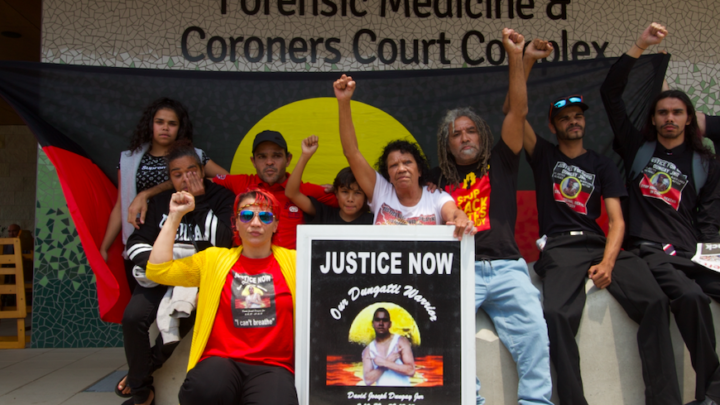
‘I can’t breathe’ – the case of David Dungay
Meanwhile in Australia, the prison guards who many feel are responsible for the death of David Dungay junior at Long Bay Correctional Centre on 29 December 2015 have still not been charged with criminal offences.
In a case bearing similarities to the death of Mr Floyd, the 26-year old was held face down on a bed by the guards and repeatedly stated “I can’t breathe” before eventually losing consciousness and later dying.
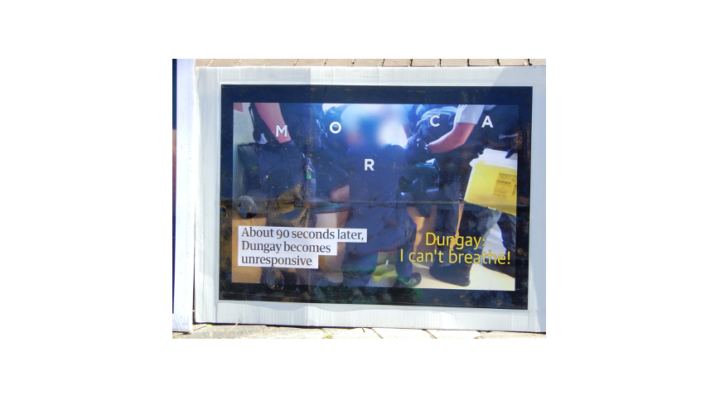
Mr Dungay had been alone in a cell in Long Bay hospital eating a packet of biscuits. The diabetic refused to stop eating the biscuits before six Immediate Action Team officers stormed the cell and dragged him down a hallway to another cell, where they held him down in the dangerous position.
The Coroner in the case found that low oxygen levels in Mr Dungay’s blood “caused by prone restraint, and extreme stress and agitation as a result of the use of force and restraint” contributed to his death.
Yet, the refusal to bring criminal charges against the alleged assailants means a jury will not have the opportunity to decide whether he was unlawfully killed.
The Dunghutti man’s family continue to fight for justice.





